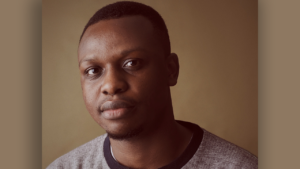
Damilola Orimogunje is a Nigerian screenwriter and film director. He has a B.Sc. in Mass Communication from Caleb University, Lagos, Nigeria. After his degree, he has worked with various production outlets like Lagos Television, Royal Roots, MNET Africa and Film One as a writer or content producer. In 2014, he won the United Nations sponsored Homevida Short Script competition.
As a film director, his short films have been selected and screened in over 50 film festivals including Film Africa, Luxor African Film Festival, Fespaco, Pan African Film Festival, winning several awards. His films have majorly been surrounded around themes as Love, Betrayal, Depression, and Death. He is inspired by the works of Wong Kar-Wai and Ingmar Bergman. His last short film is titled Losing My Religion adapted from the short- story Losing My Religion from the book Bury Me Come Sunday Afternoon by Nigerian-American writer, Nike Campbell-Fatoki.
His debut feature film, For Maria Ebun Pataki premiered in London at Film Africa in November 2020, winning The Audience Award For Best Narrative Feature. The film went on to bag six nominations at the prestigious AMAA awards, including Best Writing and Directing categories.
Damilola has been featured in reputable film blogs such as Sight & Sound, The Guardian, BBC, The British Blacklist, and many more. He sees himself as part of a new generation of Nigerian filmmakers making visually compelling and unconventional African content for social change.
Kwara Film Festival had the opportunity of interviewing this intelligent and award winning Script Writer and Director Damilola Orimogunje.
Kwara Film Festival: In 2017, you released a short film MO which won a lot of awards then. What inspired that story?
Damilola Orimogunje: First, I am drawn to social issues as a filmmaker. I had read a story related about human trafficking in the newspaper and a friend sent me a draft of Mo’s screenplay. I decided to jump on it.
Kwara Film Festival: Nice. Prior to the draft from your friend, did you have it in mind that you would shoot something on human trafficking?
Damilola Orimogunje: Nope. Though the story I saw in the news inspired me in a way. The draft motivated me.
Kwara Film Festival: In shooting films, what are the normal factors you consider or does it have to be the story that brings the factors?
Damilola Orimogunje: Authenticity of the story, setting. The idea just needs to resonate to me as human first before as an artist.
Kwara Film Festival: So no common factor that can be found in every film?
Damilola Orimogunje: My films share similar themes mostly unintentionally. Dark themes like betrayal & death. Common factor would be social related issues.
Kwara Film Festival: So let’s talk about your new Film “For Maria Ebun Pataki” which has stirred up a lot of conversations, won awards and was on Netflix top 10 earlier this year. How do you feel about the reception from people?
Damilola Orimogunje: It has been great to see, especially coming from the mindset of not expecting mainstream audience here to like it so much. Love that the purpose of exploring postpartum in the film is achieved. It has been discussed and the film itself is encouraging young filmmakers to dare to make films alike.
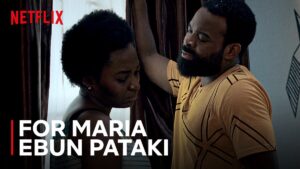
Kwara Film Festival: Great, talking about young film makers, do you one day see yourself as a Trainer in this area?
Damilola Orimogunje: I believe I train as much as I continue to learn myself. I currently mentor some younger filmmakers but yes the future goal is to have several lectures and perhaps run a film institution someday.
Kwara Film Festival: For Maria is a 75mins long Feature length and it is your first Feature, how long did it take to shoot?
Damilola Orimogunje: Principal photography? It took nine days to shoot.
Kwara Film Festival: 9 days? How were you able to manage the casts you used and what influenced the choice of Actors. For me I thought Meg Otanwa was brilliant and bodied the role well. Why her?
Damilola Orimogunje: Lol, It was a long very detailed preproduction because I knew I could not exceed those shooting dates because of funds. Meg was a friend before the project and we align on creative choices in film so it was easy to pitch the script to her and make come on board. I think I was intricate about actors who would body the role naturally & not seem like they were acting & I’m glad I had the chance to cast & work with such a talented cast.
Kwara Film Festival: We saw the use of Babies in the Movie For Maria Ebun Pataki. How were you able to achieve that?
Damilola Orimogunje: They auditioned & read the script. Such talented baby actors
Kwara Film Festival: Lmao I see. I guess they read their script well. Lol How many babies did you use?
Damilola Orimogunje: 3
Kwara Film Festival: Where and where can we see this?
Damilola Orimogunje: Second scene with Fola in the hospital has the first baby appearance. Then the next scene with baby at the house is the second baby. The third baby was introduced when Derin got back from hospital after her stitches was removed.
Kwara Film Festival: Tell me a bit about your filmmaking journey, inspiration and how many movies you have worked on so far?
Damilola Orimogunje: Hmm, I started off a screenwriter. I worked on various projects, produced for TV before venturing into directing shorts. I currently write, direct & produce. I also worked on several films but For Maria is my official debut feature.
Kwara Film Festival: Do you have a number?
Damilola Orimogunje: For everything? I can’t think of any right now else I start counting my fingers lol
Kwara Film Festival: What is your next movie and what will it be addressing this time around?
Damilola Orimogunje: Hmm, not sure yet but got a project dear to heart in storage. It’s titled “Dear Ajayi” and it addresses several issues women face in late 90’s and still now.
Kwara Film Festival: How do you generate funds to make films, especially the Netflix project, and as do you feel pressure about the outcome of your movies?
Damilola Orimogunje: I made my first film with my salary from my Tv producing job, then next film from a writing gig. I have always made my personal projects with my own money though I’ve worked on commissioned projects because they saw what I did on my personal projects. I don’t feel pressured. I just do me & leave the rest to the world.
Kwara Film Festival: I wanted to ask this feature film you directed, were you as well the producer too? Also, how can one get contacts of such brilliant casts you used for your movie? Also how does one have his film on Netflix or even in the cinema like film one?
Damilola Orimogunje: Yes I produced. The casts I used in the film are on social media. You can reach out to them I’m sure they will respond if they like what you reach out for. There are aggregators and distributors here in Nigeria (e.g. FilmOne) that aggregate for Netflix or Amazon you can reach out to them with your work and I am sure they will let you know the process or if they want to distribute your film. Albeit, I worked with a foreign distributor.
Kwara Film Festival: When you started scriptwriting? What was your motive and how did you grow yourself sir?
Damilola Orimogunje: I loved writing from childhood. I majored in journalism in my university until I got introduced to film. My motive was for screenwriting was similar to me being a journalist. Writing related issues and harnessing my investigative prowess to tell powerful stories. I learnt by myself, not a product of any film school. I read loads and loads of produced screenplays, books, watched tutorials, watch a lot of films, practice, fail and get better as I learn my style and voice.
Kwara Film Festival: You said you basically shot for 9 days, do you actually planned to shoot for 9days or you planned spending more days rather than that 9days and was it comfortable shooting for that period of days. I asked this question because I get to know that directors like Kunle Afolayan, Kemi Adetiba and some do shoot for as long as 20days and more.
Damilola Orimogunje: I think I had planned to shoot for 15 days or so. But because of budget, we streamlined the shooting schedule to 9. So we planned for 9 days. We had nearly 100 scenes for the entire film so we scheduled about 9 + scenes per day. We knew we couldn’t afford to exceed those dates.
Kwara Film Festival: What is the total number of scenes in the movie Marie and is it the number of scenes that determines the number of days you going to use to shoot?
Damilola Orimogunje: Now, this doesn’t normally work for everyone. As a producer, I always advise extra days “just in case” also the numbers of scenes doesn’t decide most times because some 2 scenes can be more tedious to shoot than some 7 scenes. Why it’s important to work with strong schedulers or ADs to work on the schedule and make you stick to it.
Kwara Film Festival: One striking point to note in your movie was the grading. What influenced the choice of colours?
Damilola Orimogunje: Firstly, Andrew Dosunmu’s Mother of George was a reference film. We used majorly color blue in the film to denote depression because of the name “Maria” which means “sea of biterness or sorrow”. Didn’t want to go for the conventional sad dull colors & also wanted the film to look beautiful despite being depressing. The film was graded by a guy named Josh Borrill in South Africa.
Kwara Film Festival: Just as we know that filmmaking is a laborious job, so what keeps you motivated?
Damilola Orimogunje: Truthfully, I am not sure lol. I just love making them but I love the impact of films/art. Days like these keep me motivated to want to make more films.
Kwara Film Festival: When and where was “For Maria Ebun Pataki “shot?
Damilola Orimogunje: November 2019, Ojodu Berger.
Kwara Film Festival: The script is important to make a film; do you think all filmmakers focus on that?
Damilola Orimogunje: I don’t know.
Kwara Film Festival: What are your goals when you make a film?
Damilola Orimogunje: Impact — on audience, film industry & to me as a filmmaker.
Kwara Film Festival: If you do not mind to share with us here the total amount it cost you to produce the movie in question?
Damilola Orimogunje: A low budget of millions of naira.
Thanks a lot for your time Orimogunje Damilola
We appreciate your time and we hope to have you at the festival.
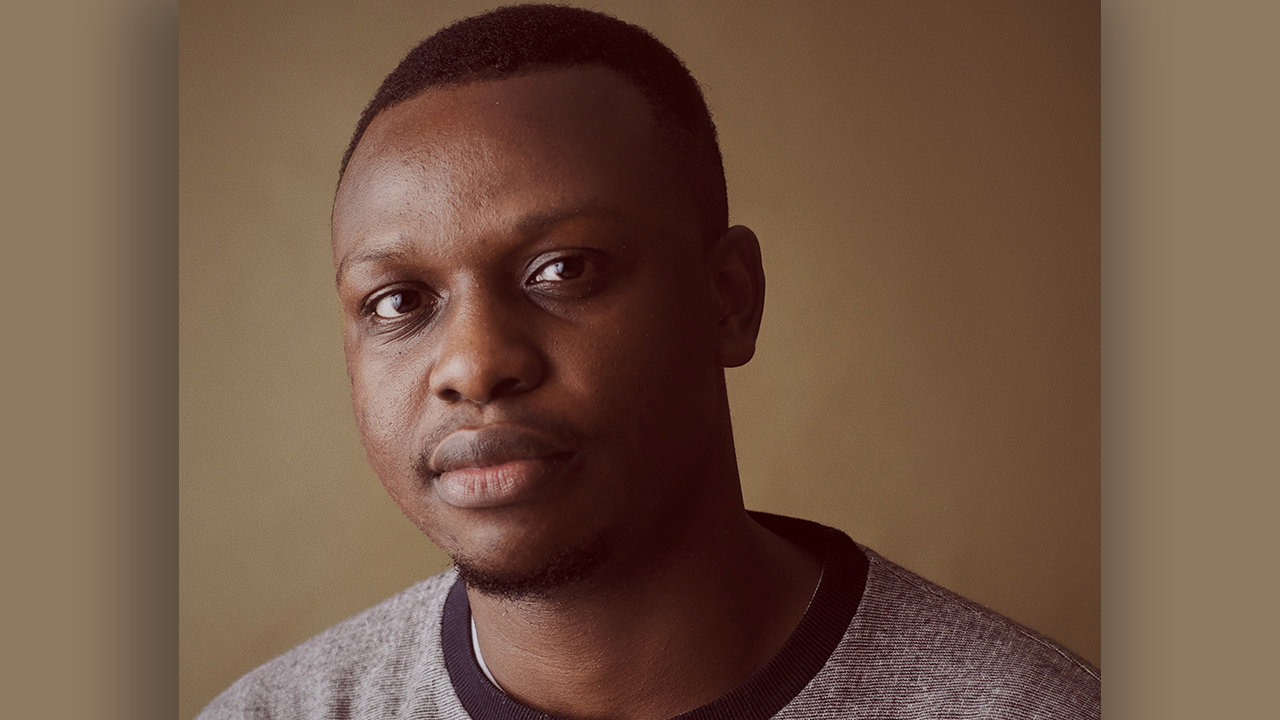




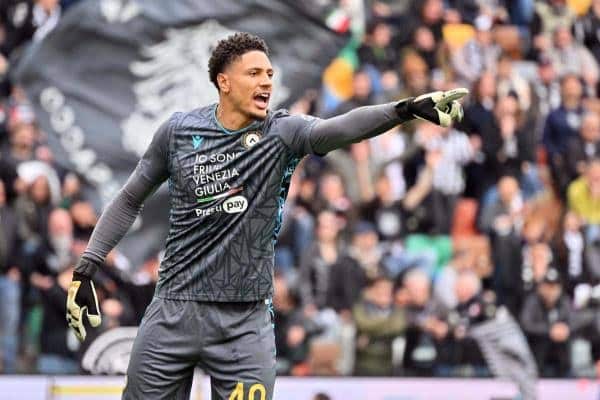
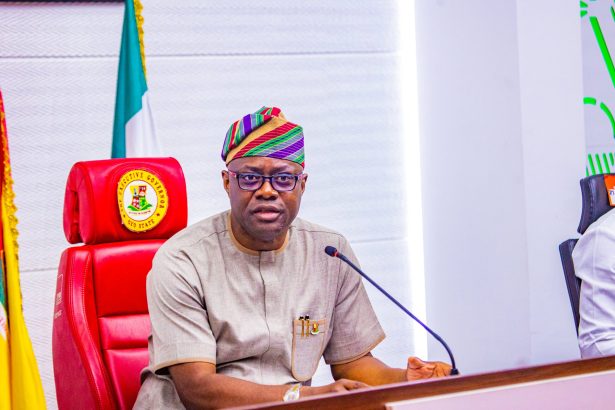
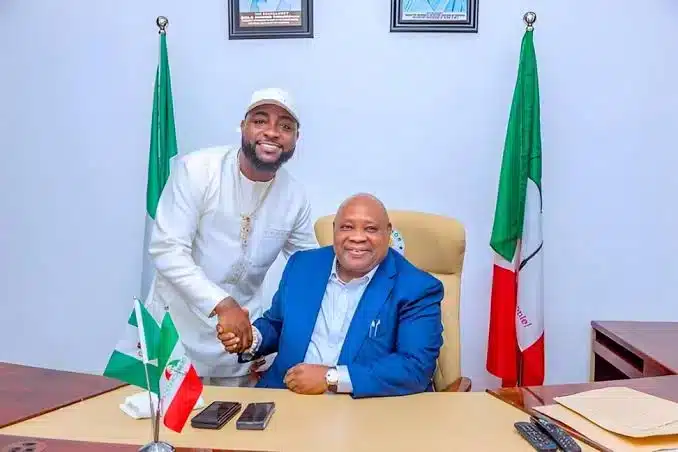
Leave a Reply